Pacientes neurológicos sufren daños cerebrales irreparables por escasez de anticonvulsivos
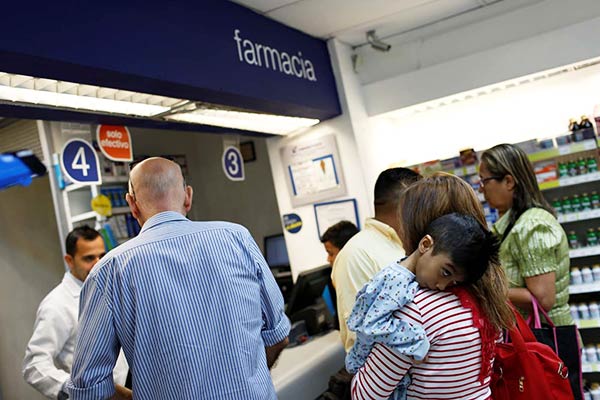
Pacientes neurológicos sufren daños cerebrales irreparables por escasez de medicinas | Reuters
A pesar de visitar un promedio de 20 farmacias al día en Caracas, el plomero venezolano Marcos Heredia no pudo encontrar los medicamentos necesarios para evitar las convulsiones de su hijo epiléptico, reseña Reuters.
Sin esas medicinas, Marcos, de ocho años, sufrió un daño cerebral irreparable a fines del año pasado: dejó de mantenerse erguido por su cuenta y de responder a estímulos externos.
“Llamé para San Cristóbal, Valencia, Puerto la Cruz, he llamado a Barquisimeto y no me lo han podido conseguir”, se lamentó su padre, de 43 años, hablando desde su casa en la barriada ‘El Aeropuerto’, en el estado costero Vargas. “No se encuentran las medicinas y el Gobierno no quiere aceptar eso”.
Finalmente, un primo suyo le consiguió las medicinas pero, para buscarlas, Heredia tuvo que viajar 860 kilómetros en autobús hasta la frontera colombiana. Una vez con las pastillas en la mano, regresó para no faltar al trabajo al día siguiente.
La brutal recesión económica que sufre Venezuela agrava cada vez más la escasez de medicamentos, desde analgésicos hasta fármacos para tratar el cáncer.
La ausencia de medicinas es de un 85 por ciento y los anticonvulsivos son algunas de las más difíciles de encontrar, según la Federación Farmacéutica de Venezuela.
Un estimado de entre 2 y 3 millones de venezolanos sufren de epilepsia y la mayoría de ellos bregan para encontrar anticonvulsivos. Los medicamentos empezaron a escasear en el 2012, según La Liga Venezolana Contra la Epilepsia.
El presidente Nicolás Maduro ha descrito la escasez como un complot en contra de su Gobierno socialista, pero en un discurso reciente dijo que había aprobado “una cuantiosa cantidad de dólares” para aumentar la disponibilidad de fármacos.
“Con el corazón en la boca”
Los pacientes que, de otro modo serían funcionales, -o aquellos que habían logrado progresar en movilidad o habla– ven como se pierde su progreso por falta de medicamentos para tratar sus convulsiones, según sus padres y doctores.
Al igual que Heredia, los pacientes y sus familias hacen lo que pueden para conseguir las medicinas: intercambian pañales, participan en grupos de WhatsApp para ayudar en la búsqueda, usan medicamentos vencidos o piden a sus amigos que les traigan medicinas del extranjero.
Pero la escasez es tal que los pacientes recurren a consumir medicamentos inadecuados para su condición, dicen los médicos.
La neuróloga Beatriz González de la Liga Venezolana Contra la Epilepsia, ha mostrado preocupación por los efectos secundarios que pueden llegar a sufrir las embarazadas por tomar anticonvulsivos que causan malformaciones en el feto.
El problema va mucho más allá de los pacientes epilépticos.
Las convulsiones inesperadas pueden afectar a niños por fiebre, víctimas de accidentes o personas con otras condiciones.
Los ministerios de Información y Salud de Venezuela, así como el Instituto de Seguridad Social, que supervisa algunos hospitales y distribución de medicamentos, no respondieron a las solicitudes de Reuters de comentarios.
Debido a la crisis y al elevado precio de las medicinas, muchas familias han tenido que recortar sus gastos alimenticios.
Leonardo Colmenares, un niño de seis años que sufre de epilepsia y una enfermedad neurológica degenerativa, pesaba 10 kilos a mediados del año pasado, pero perdió dos kilos en seis meses ya que su madre no puede costear sus alimentos.
Cuando Leonardo convulsiona, su madre debe correr al hospital para que le suministren anticonvulsivos intravenosos.
“No puedo simplemente ir a un parque con mi hijo porque, de repente, tengo que salir corriendo”, contó Norymar Torres. “Vivo con el corazón en la boca”.
Por Andreína Aponte/Reuters

Tatiana Rocha, baña a su hijo Kaleth Heredia, de 2 años
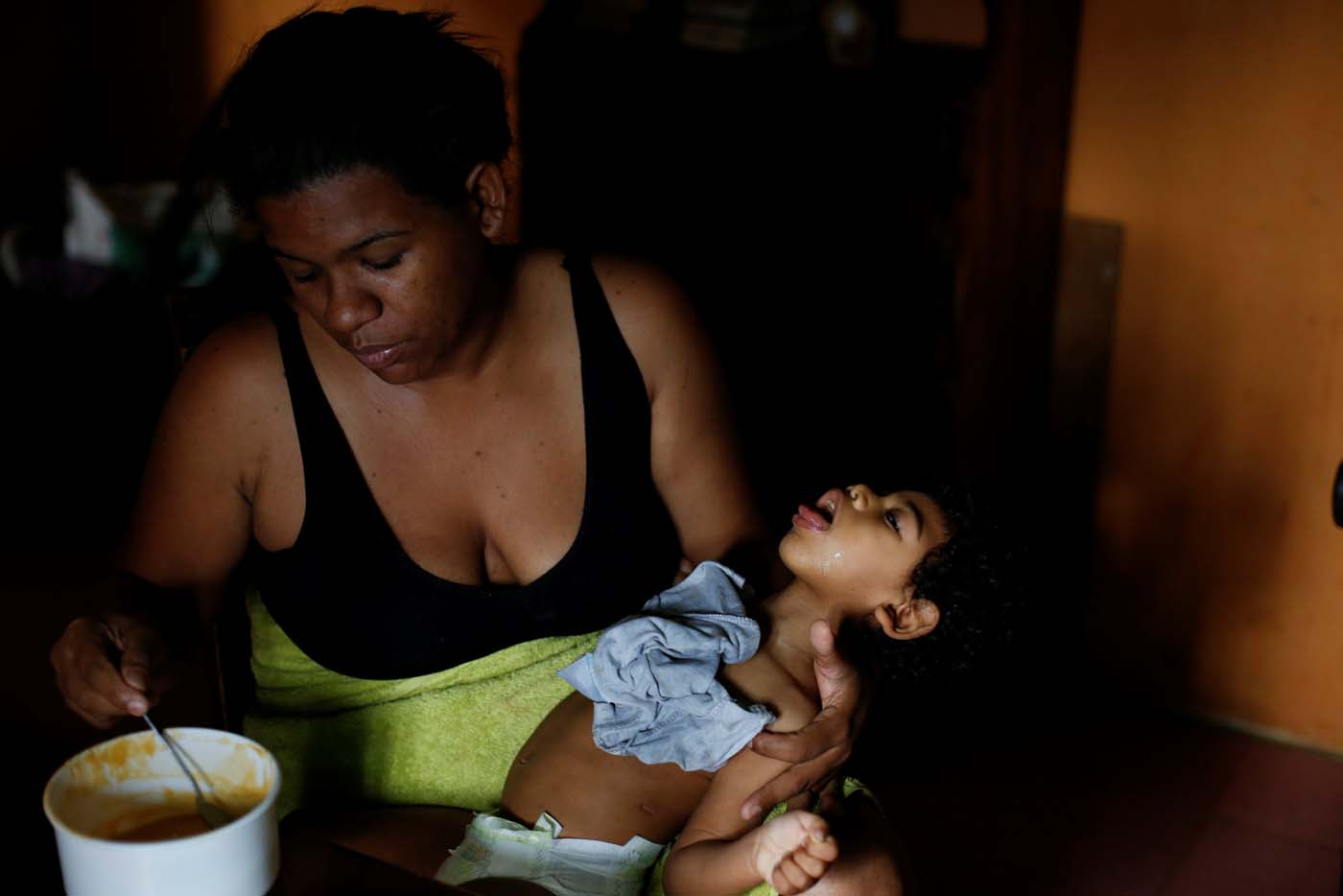

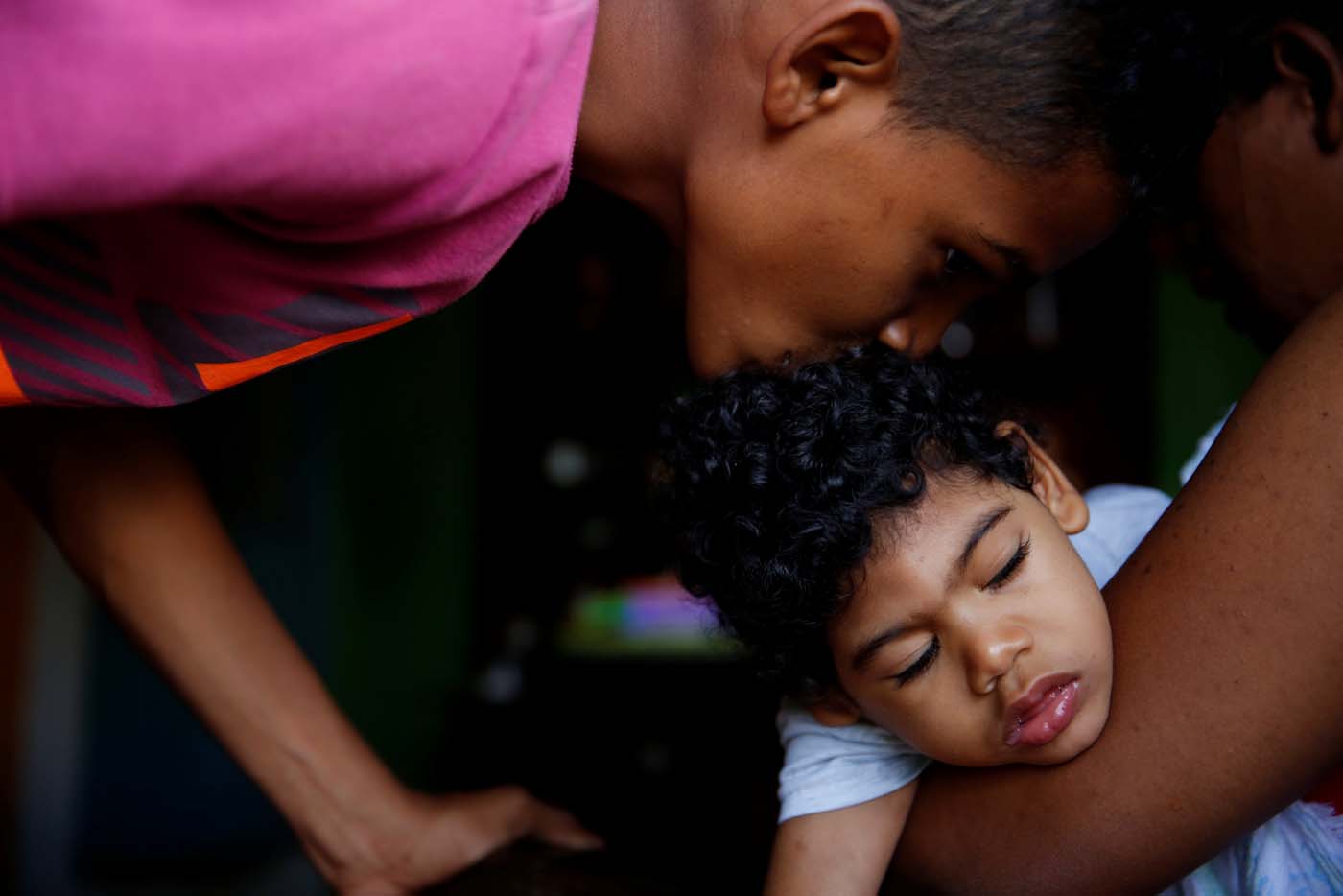
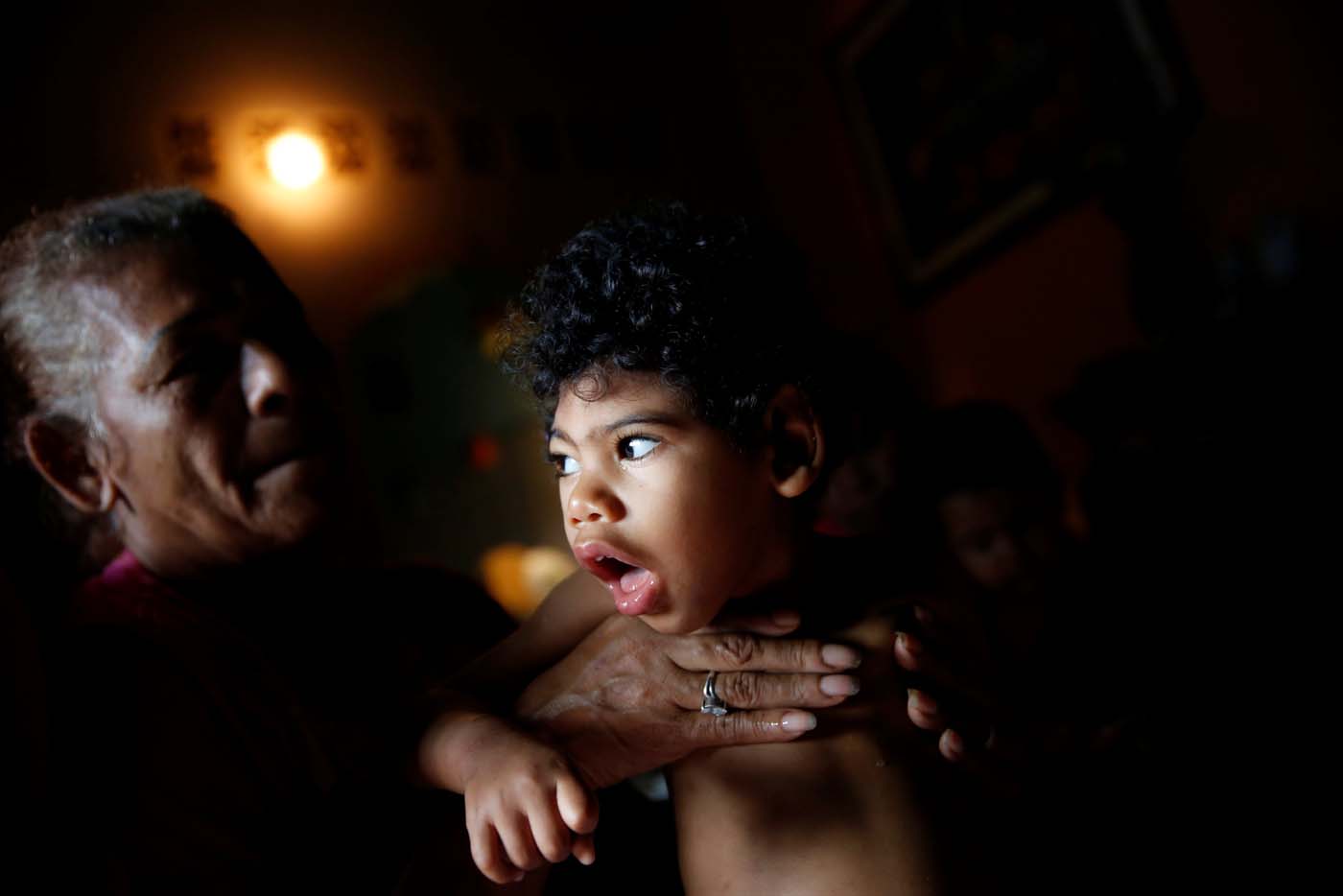
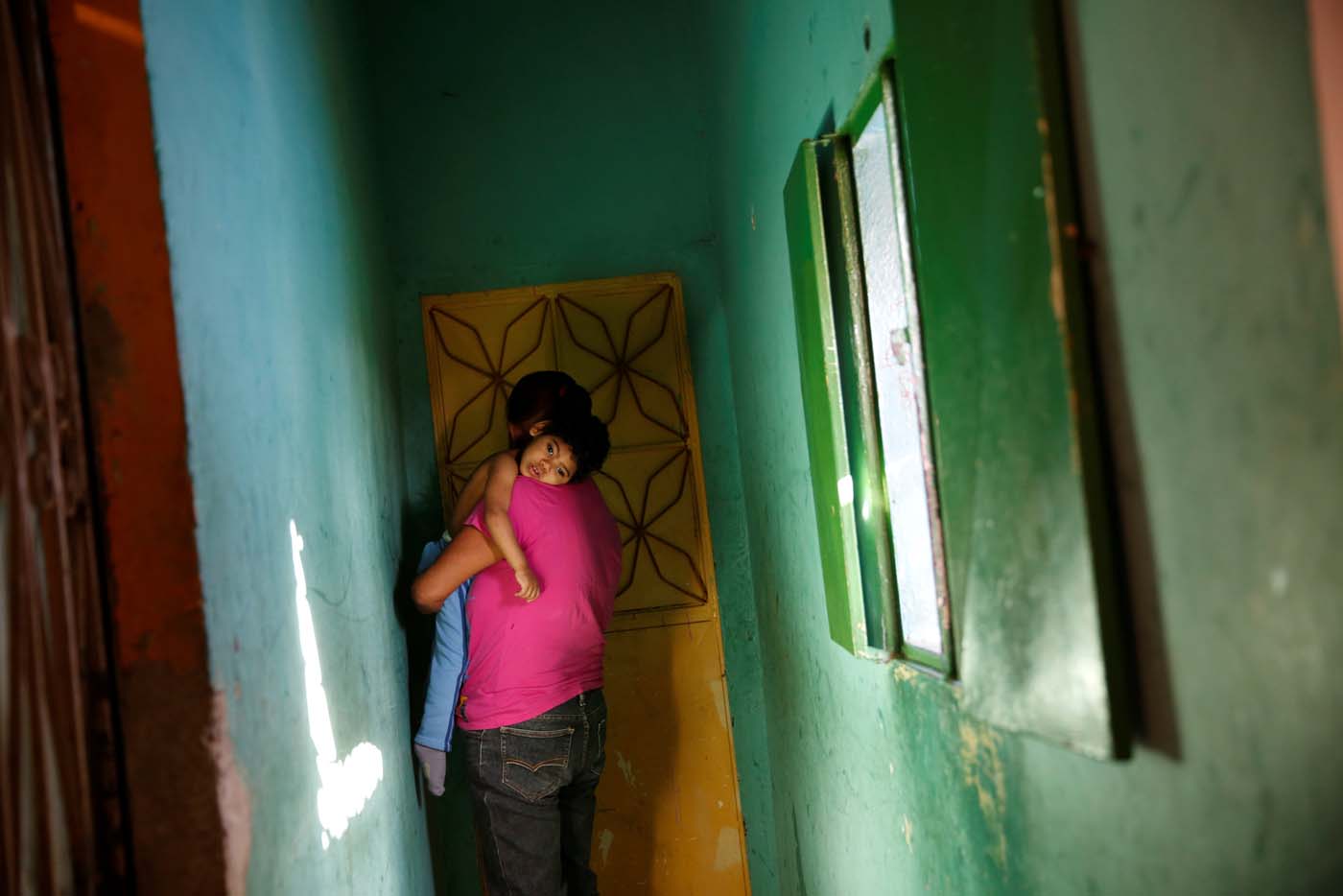
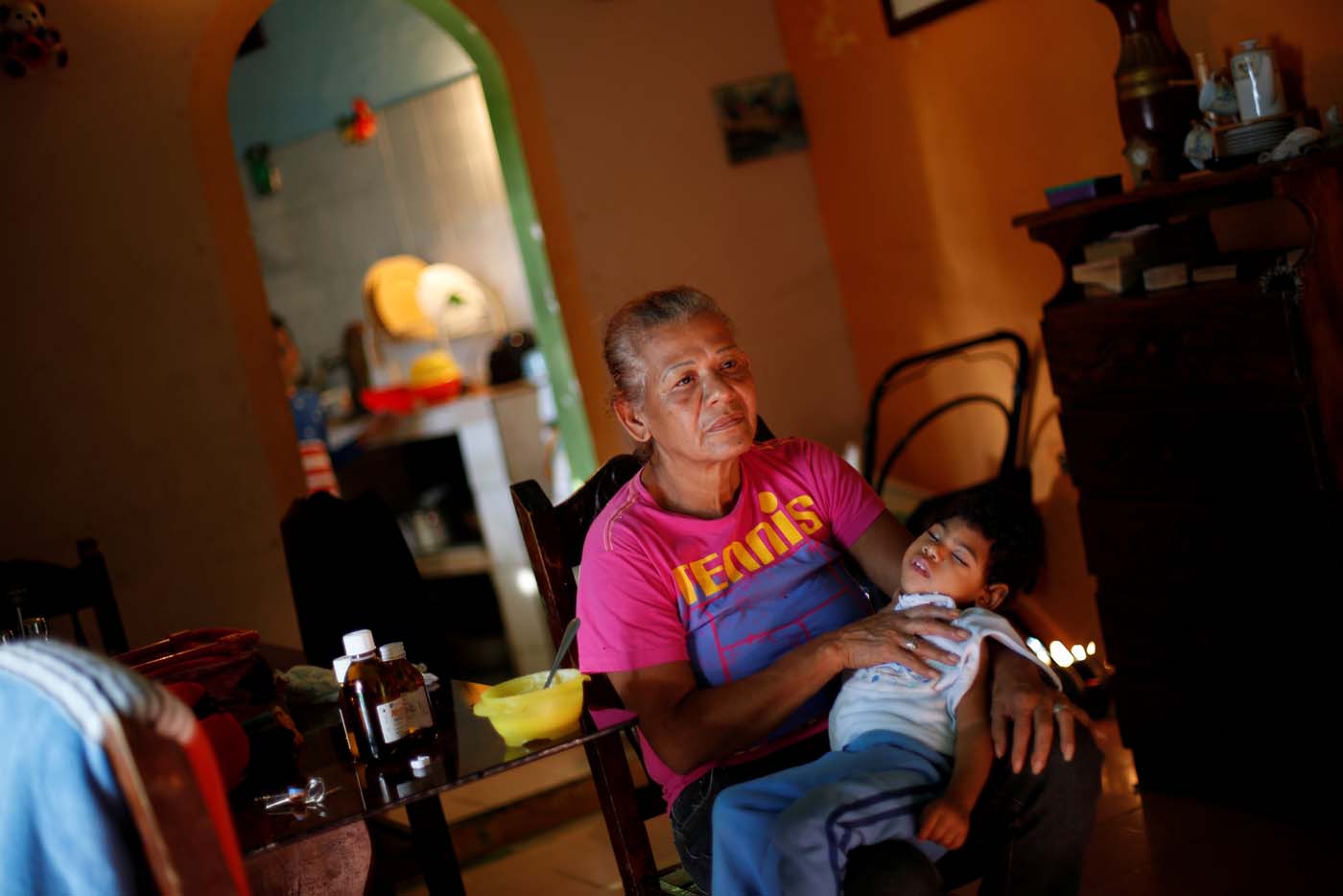
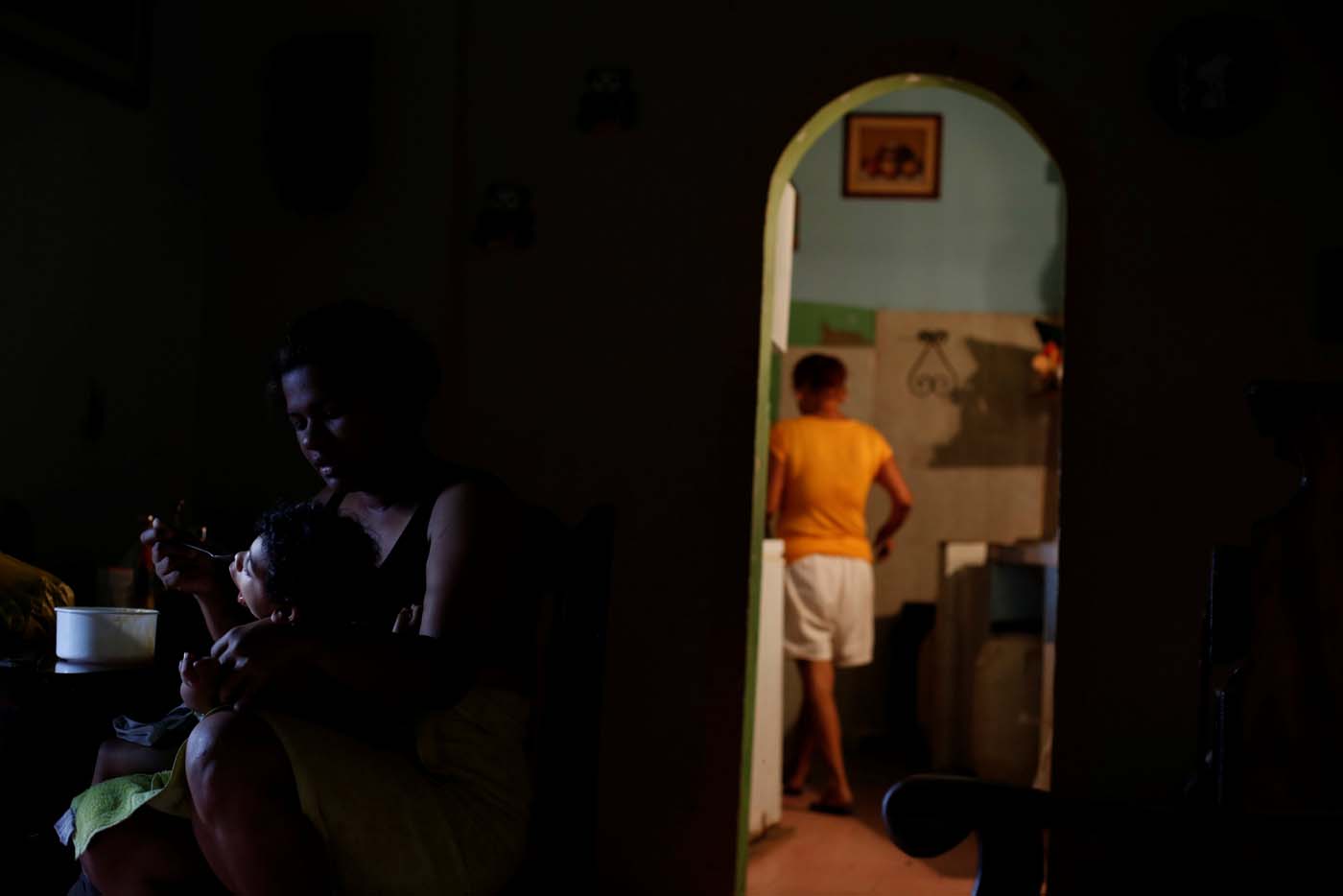
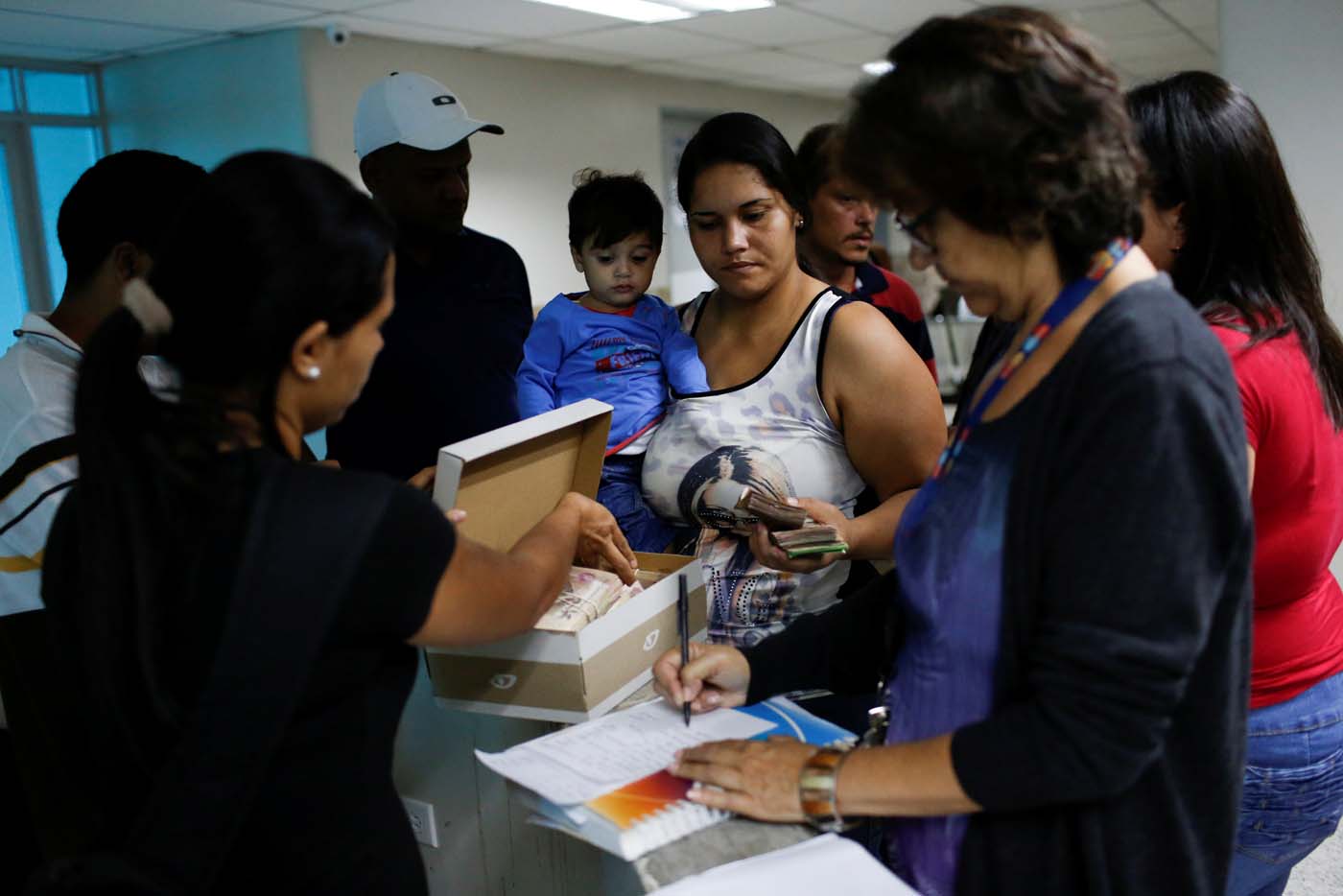
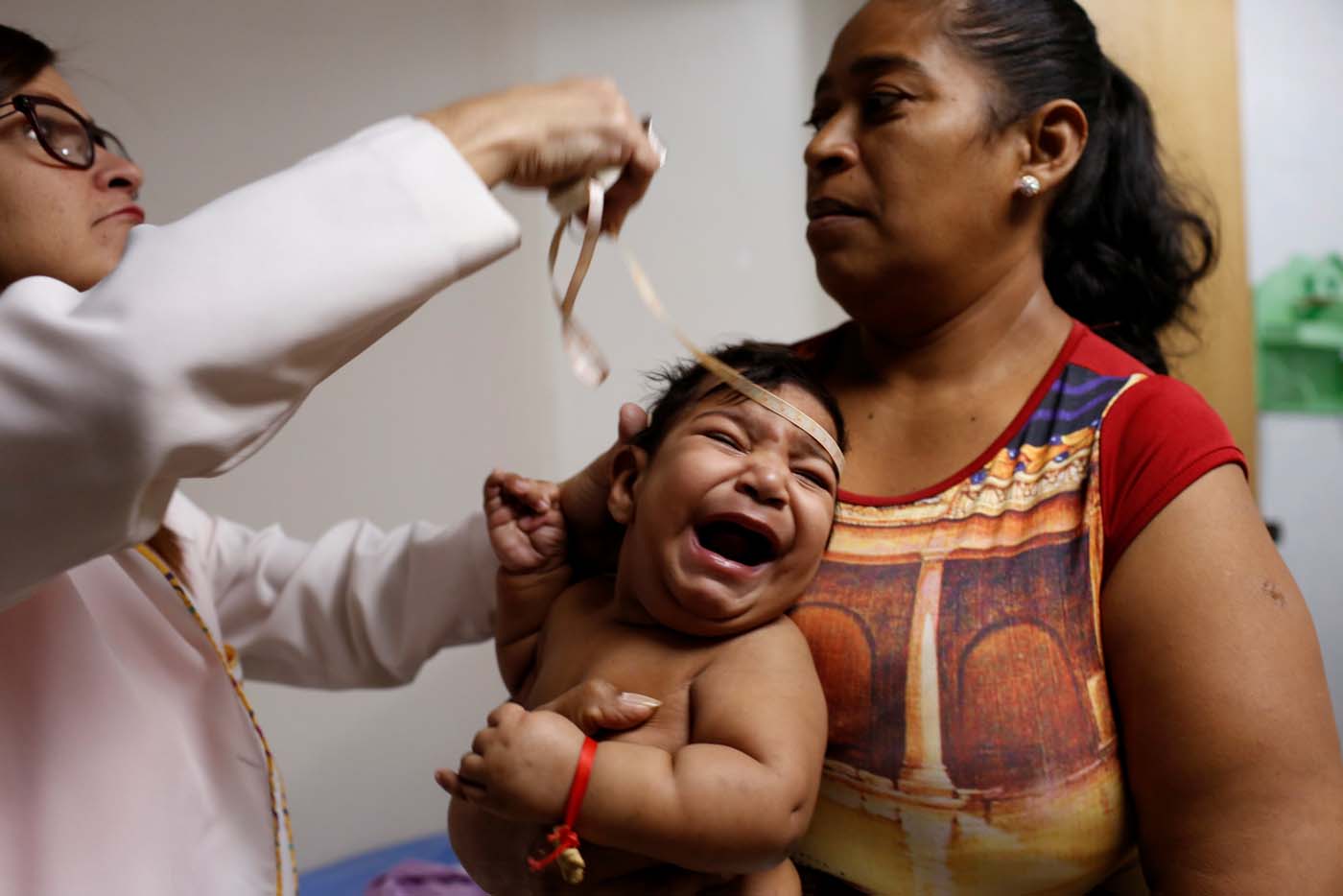
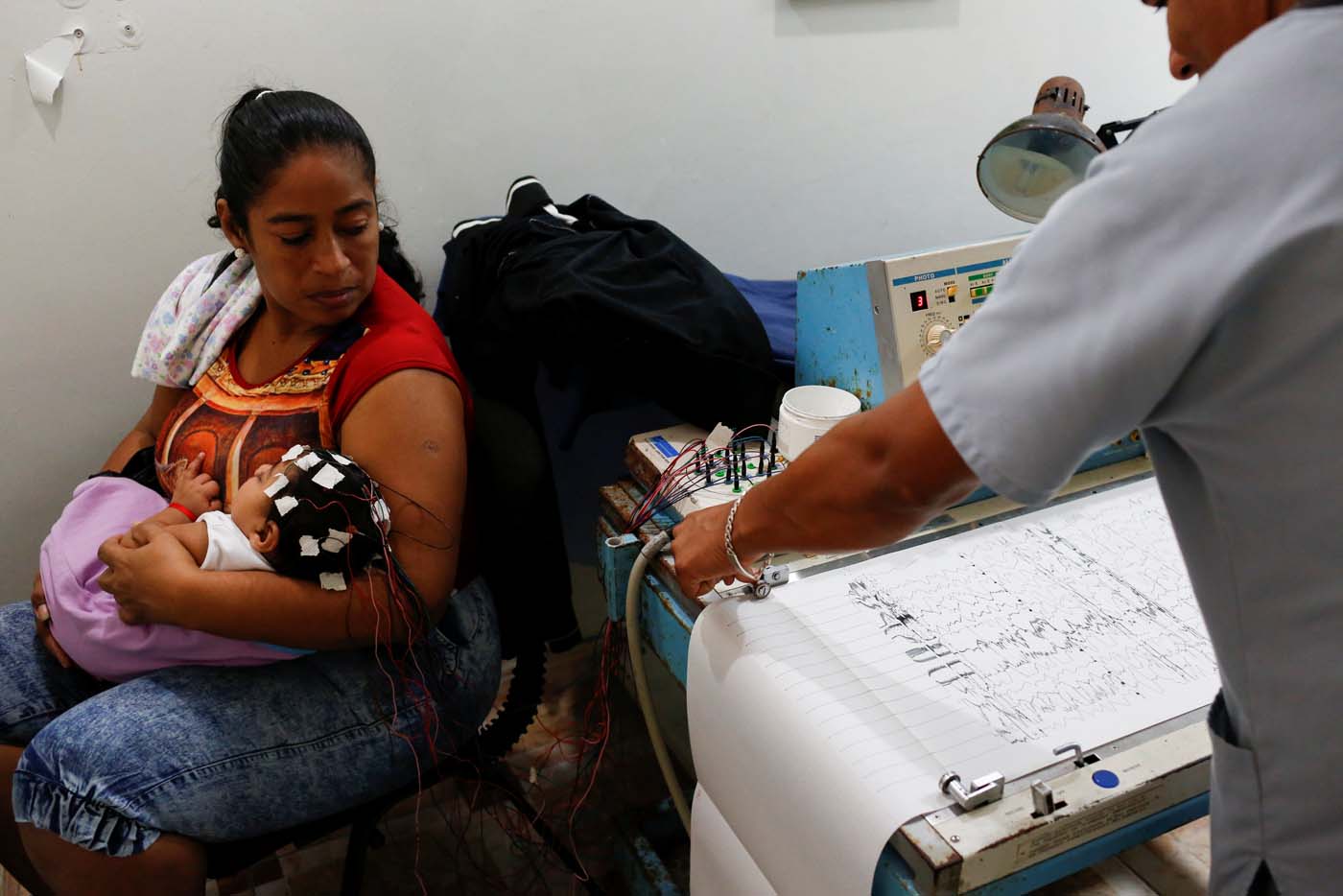
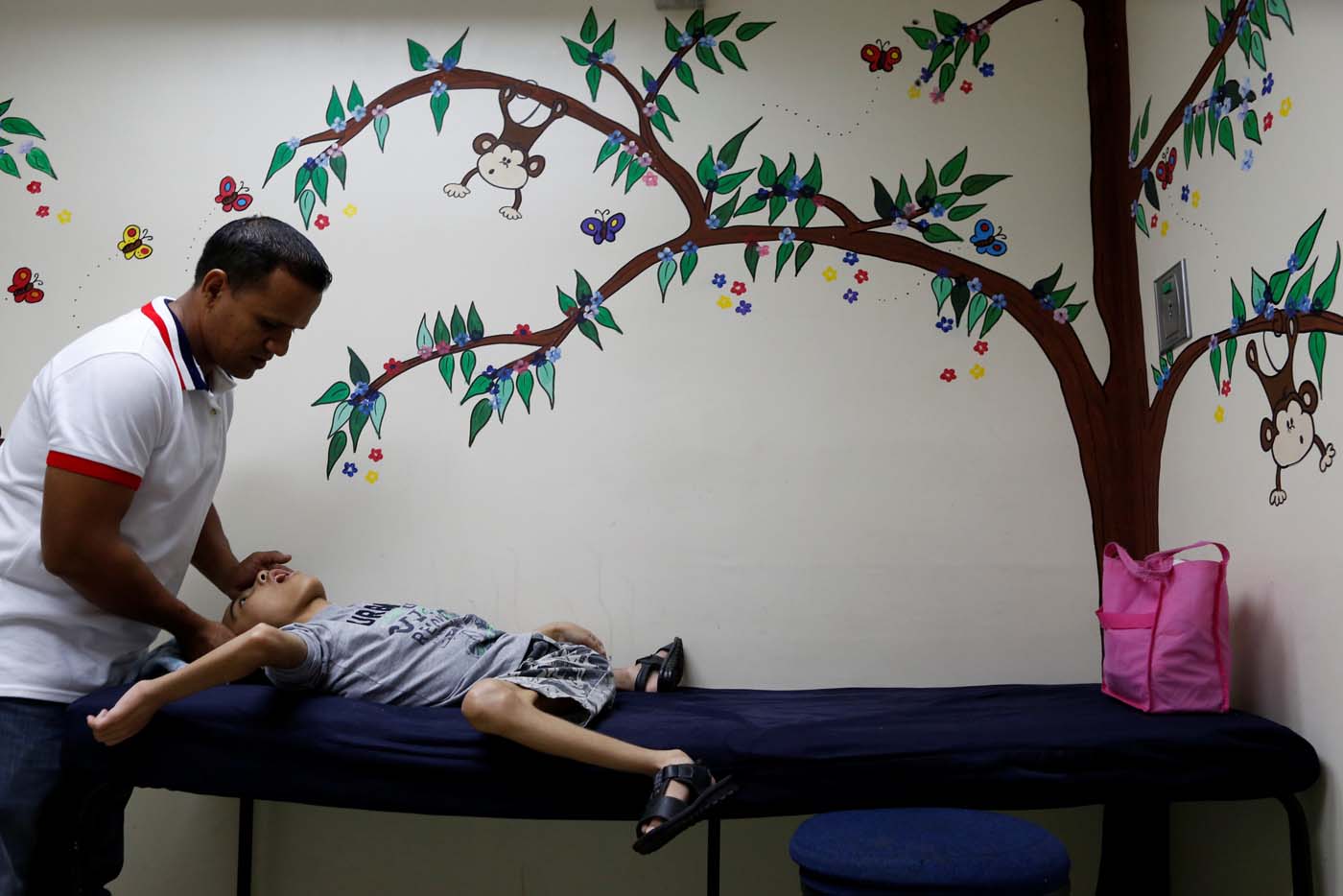
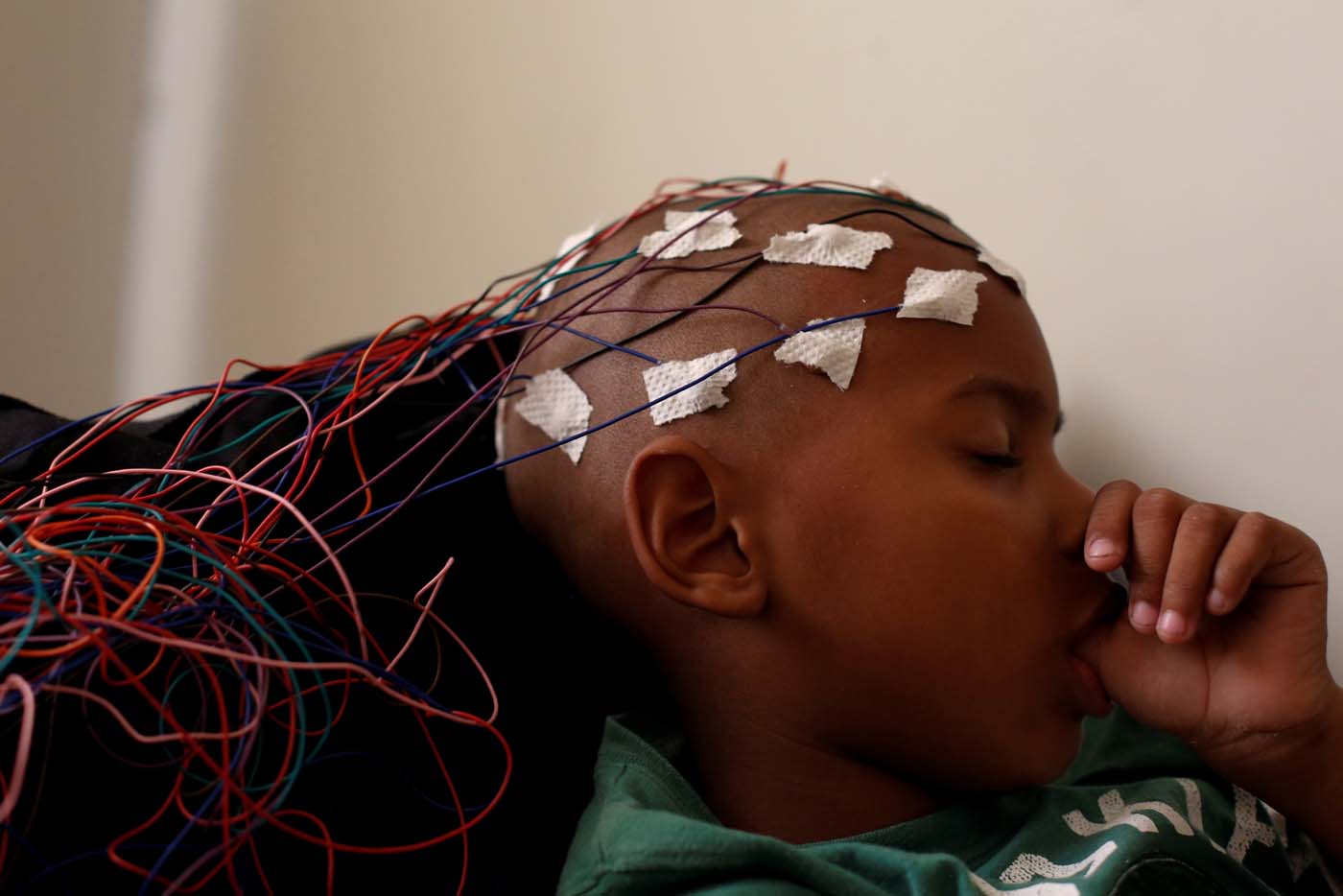
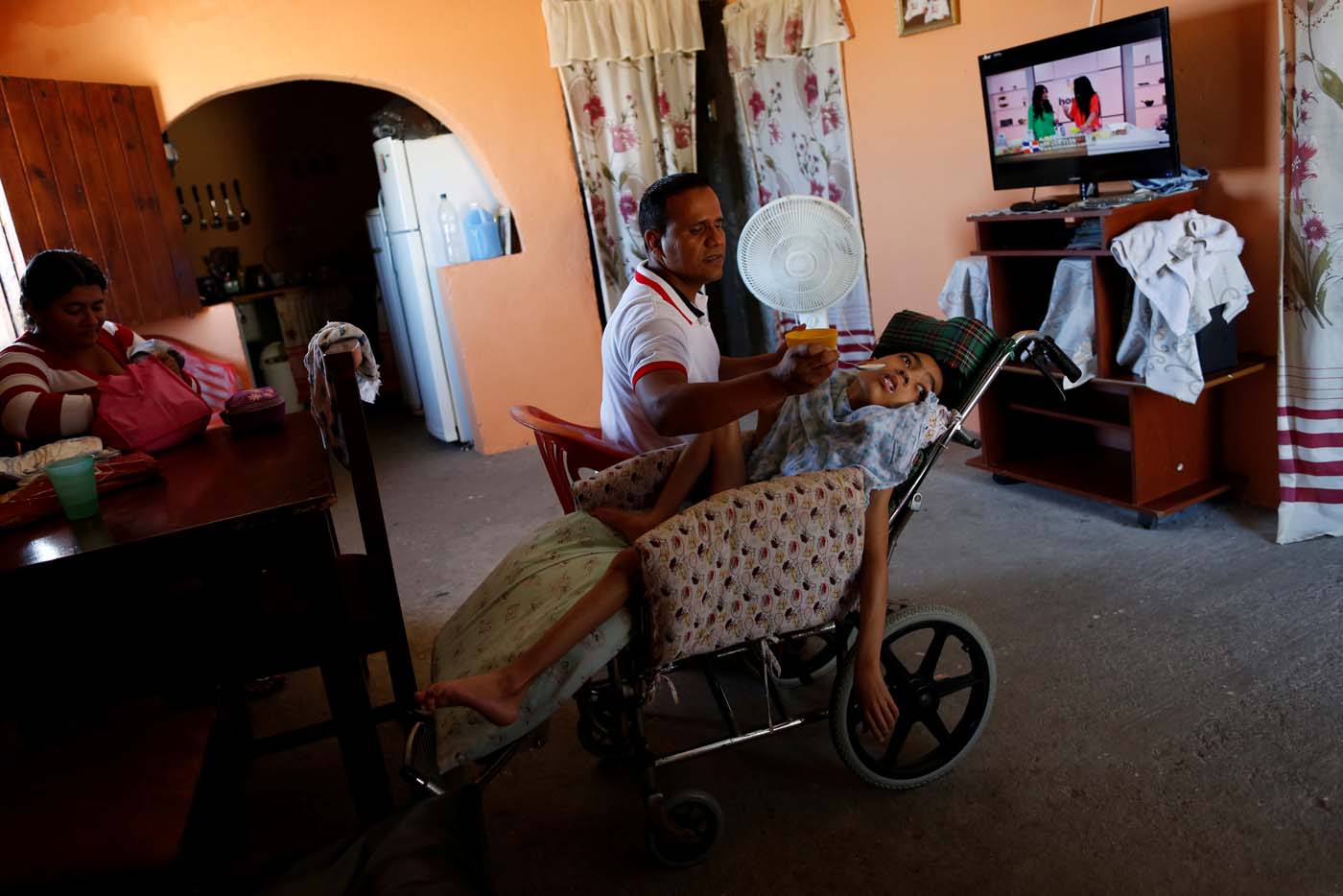
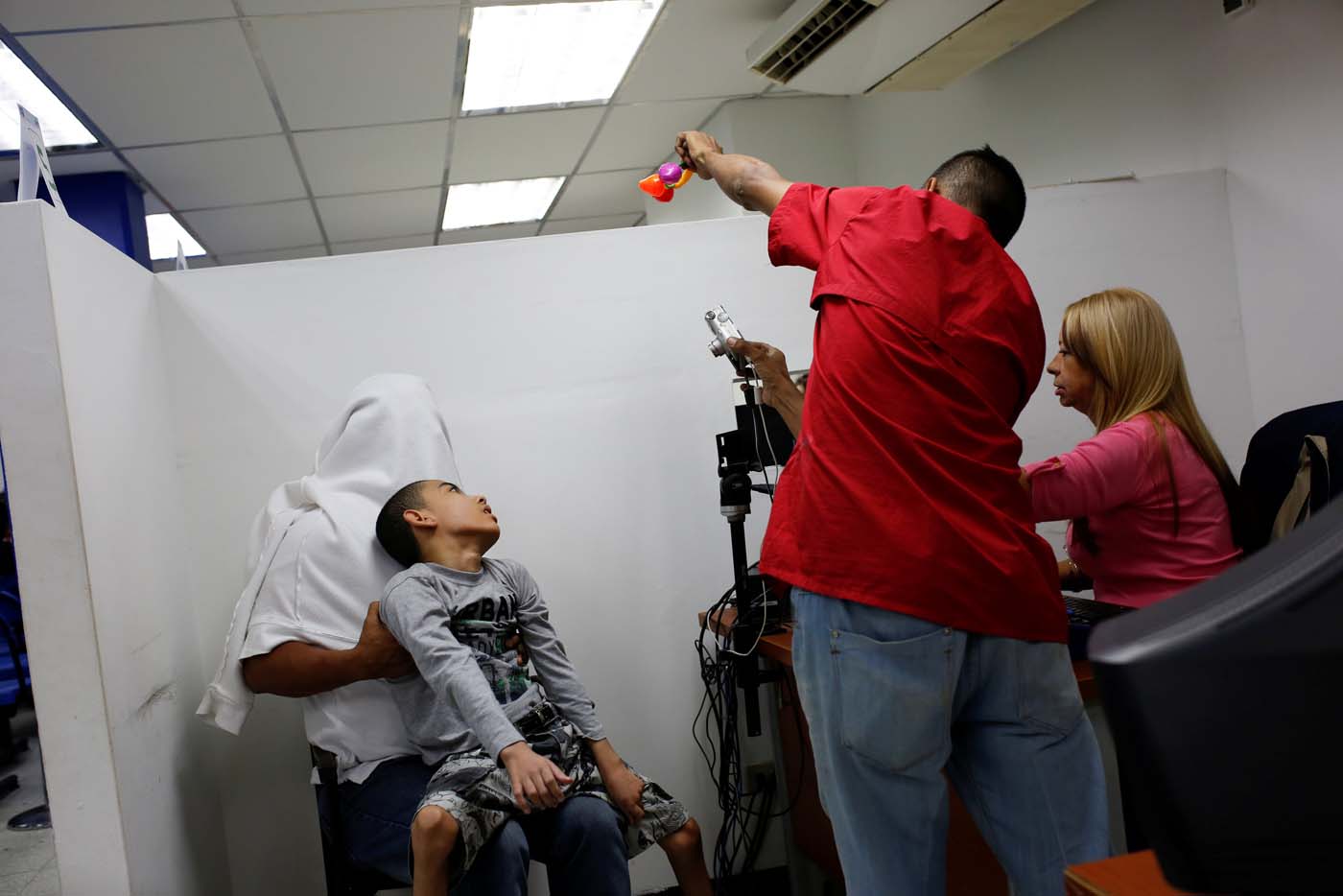
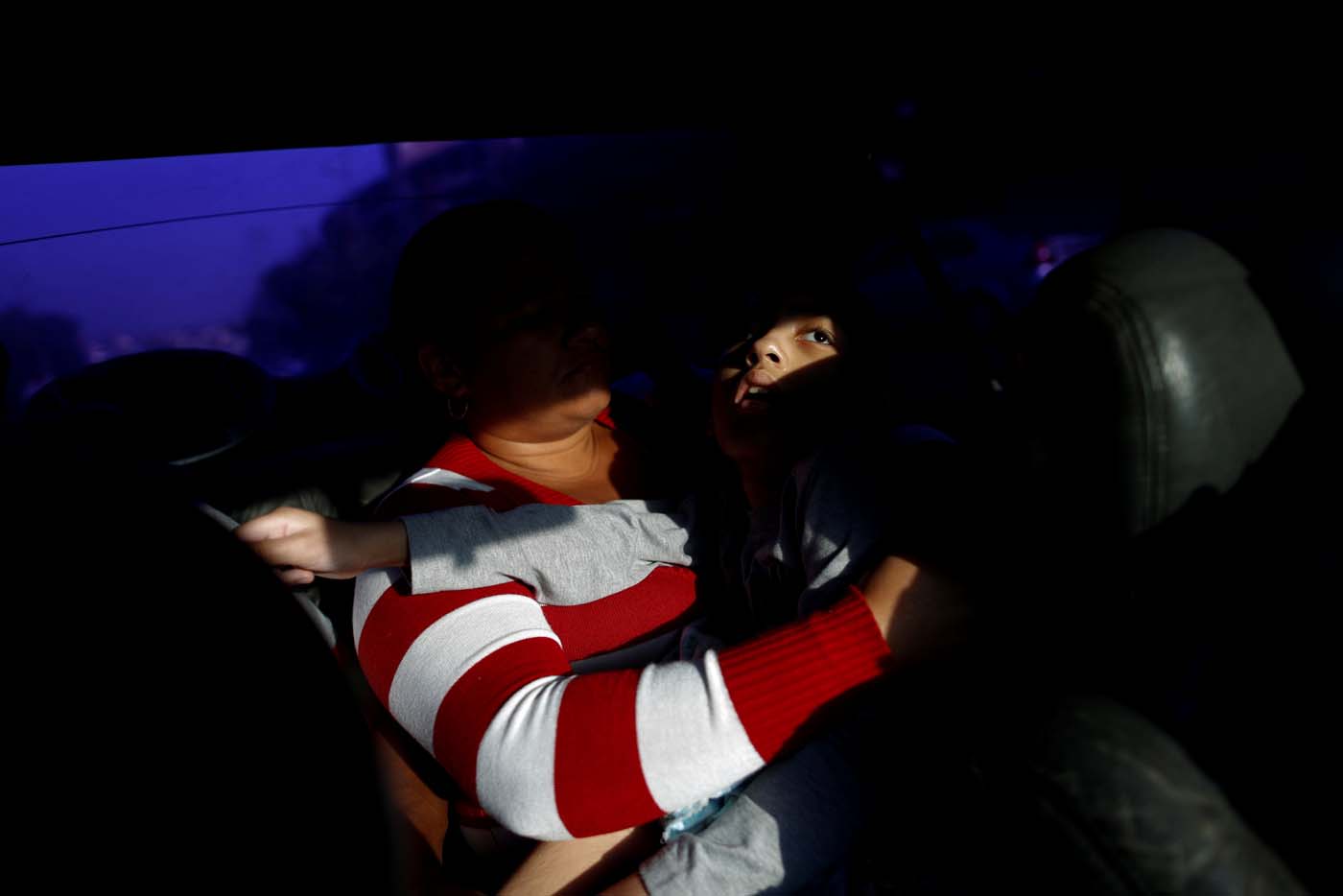
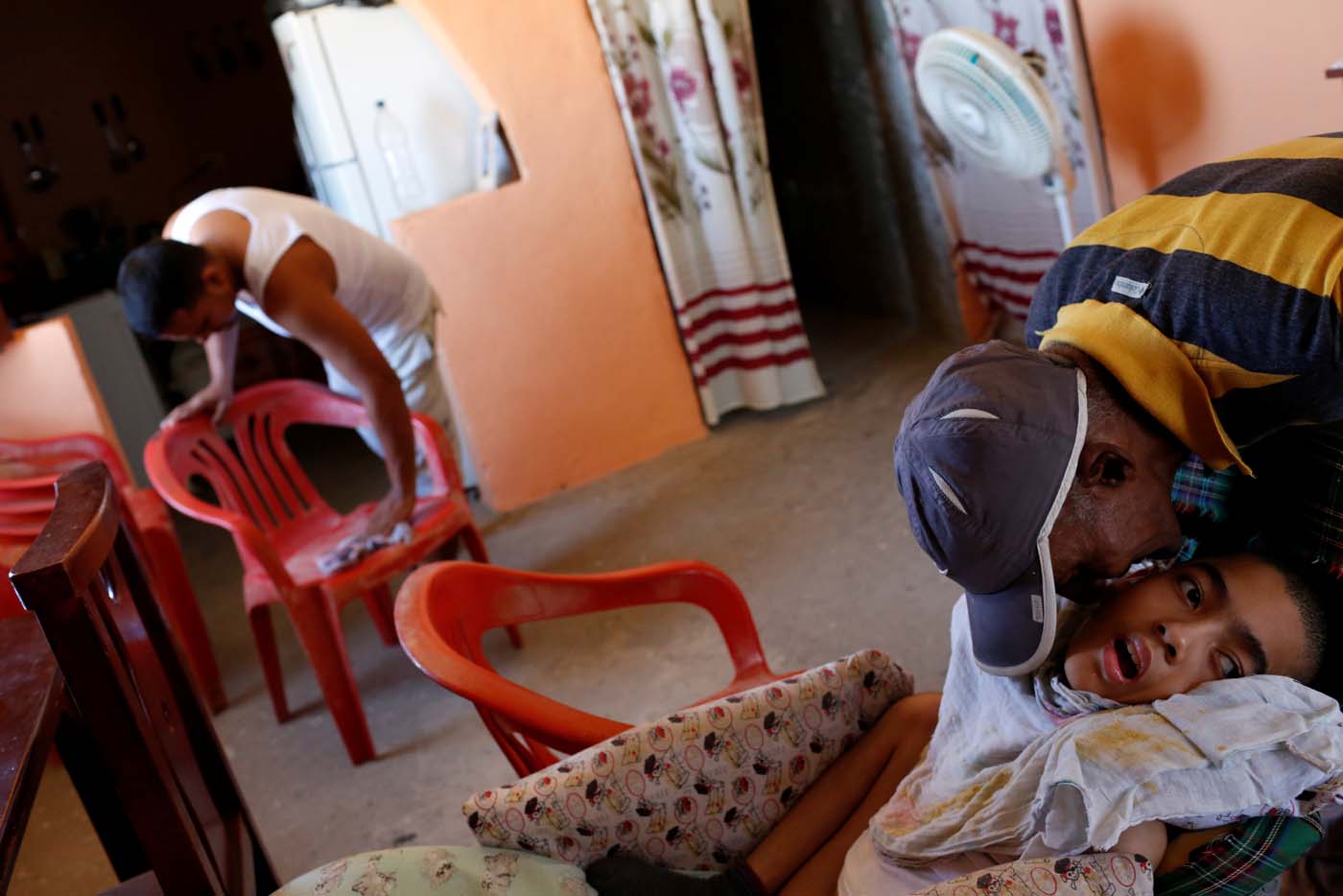
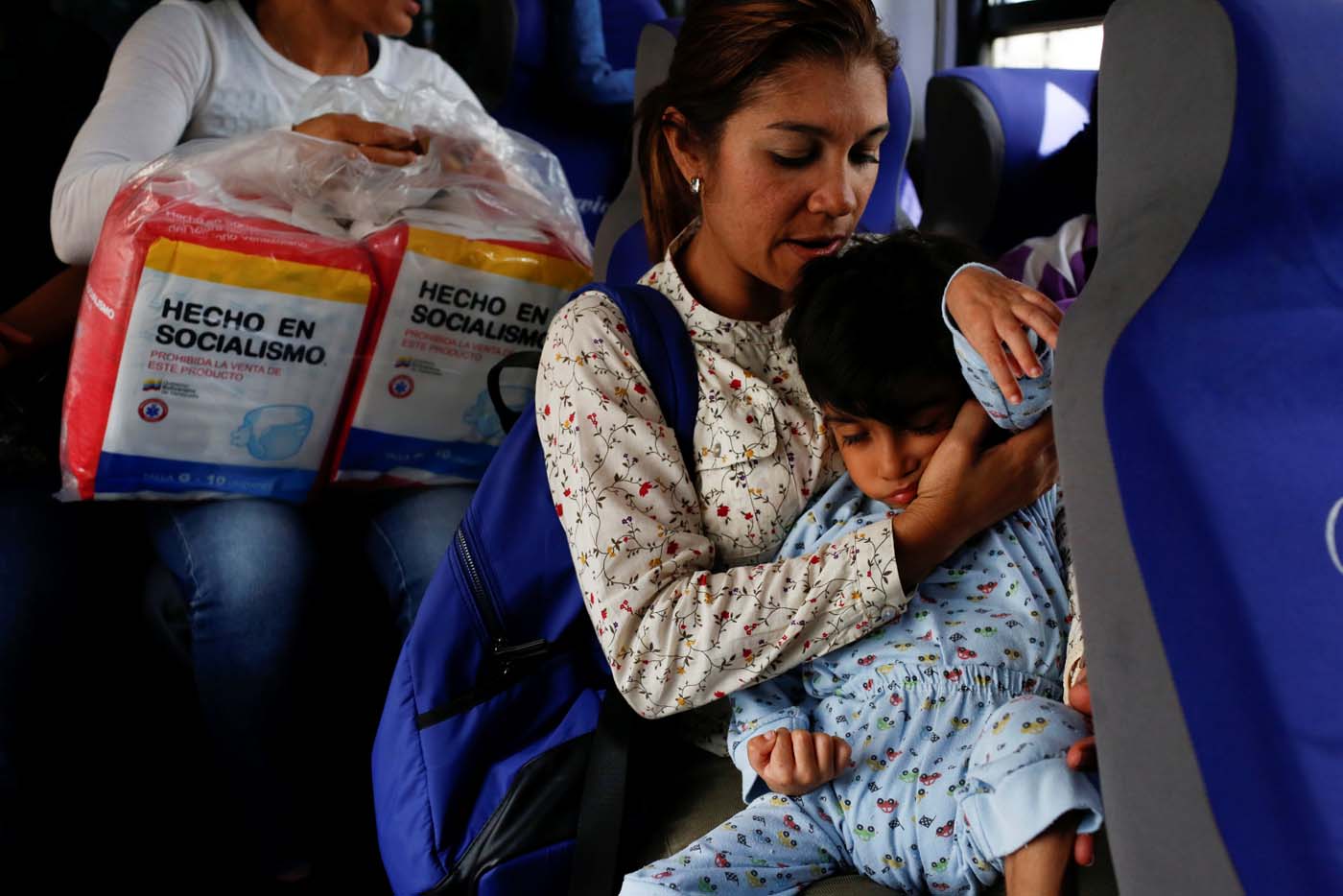
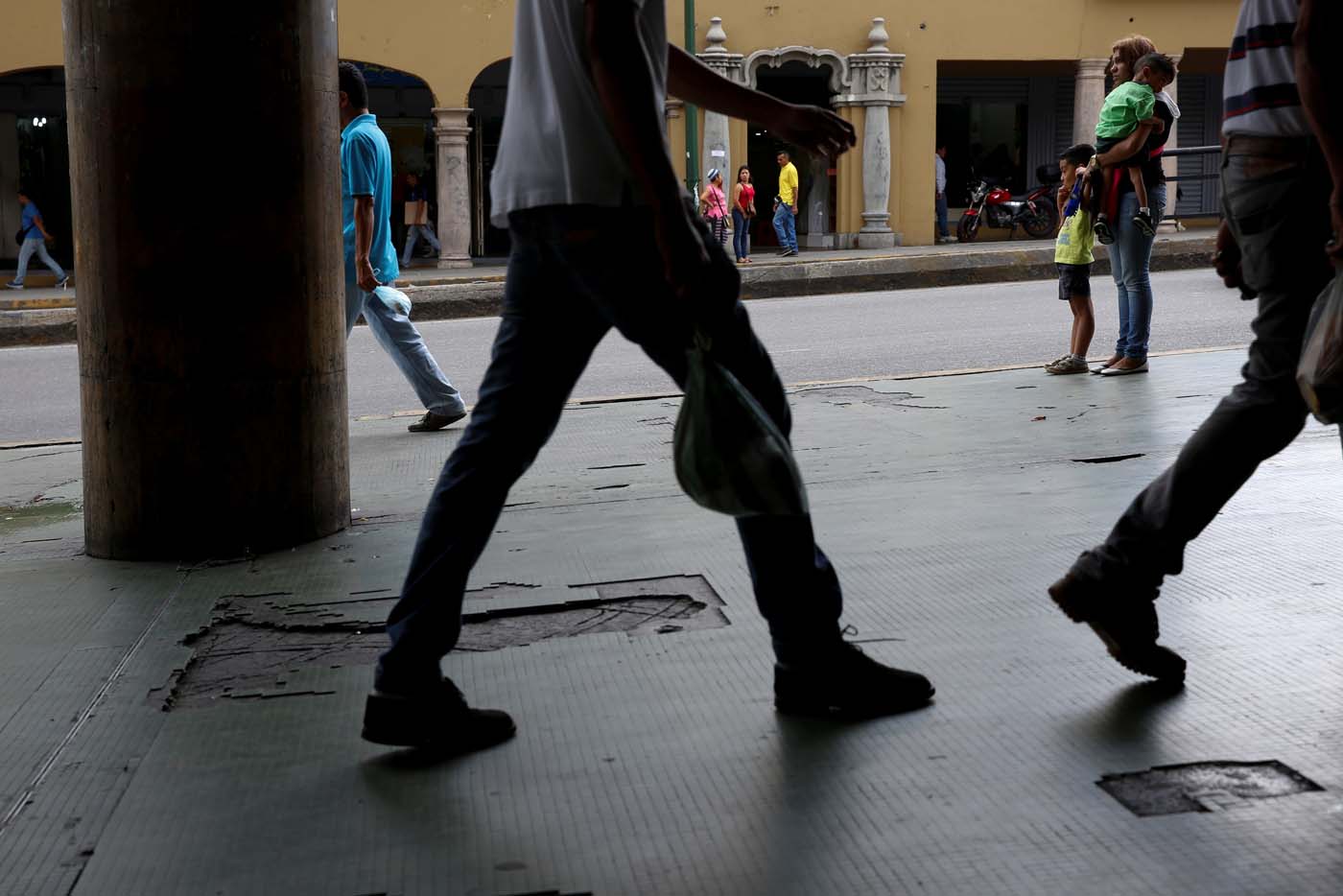
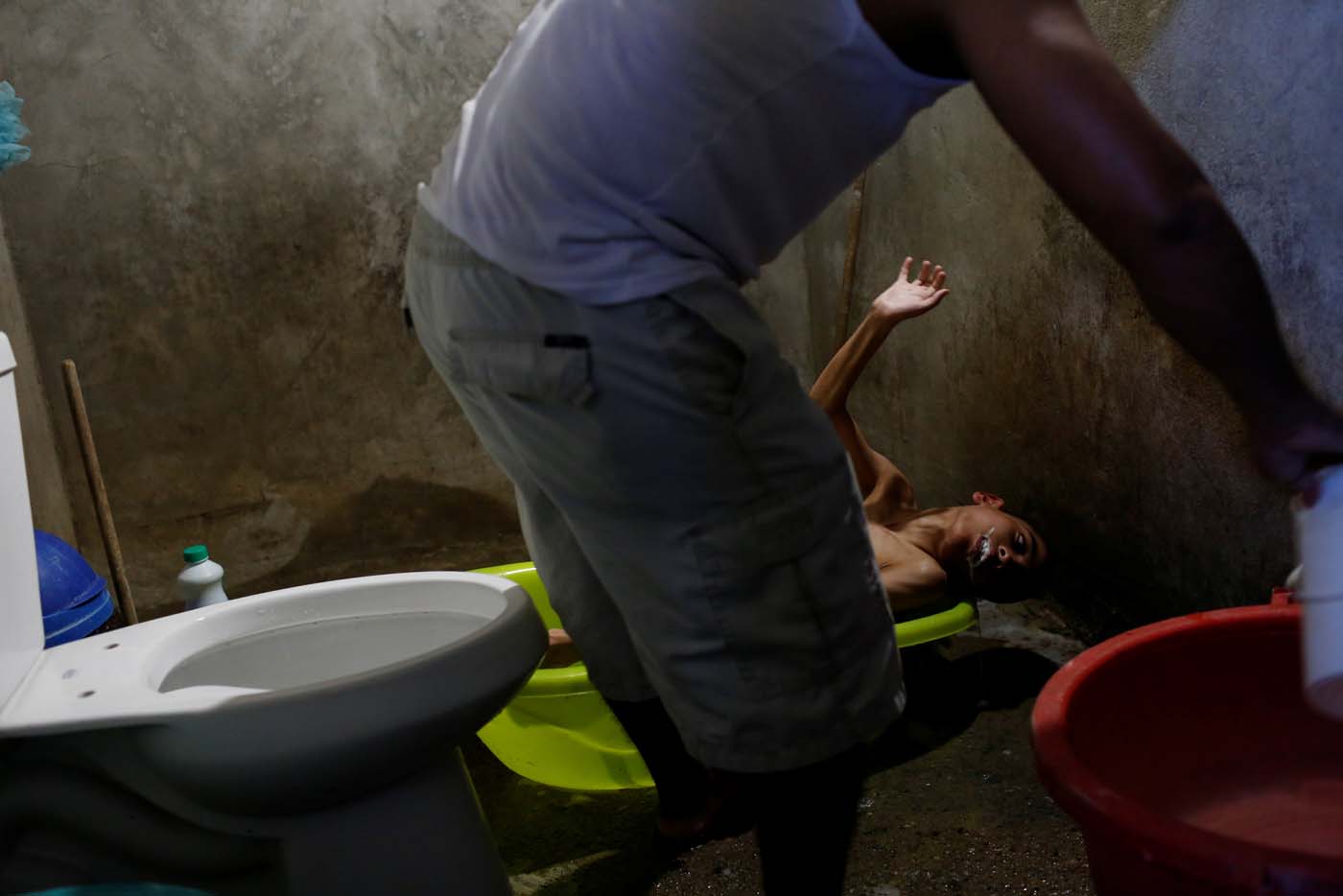
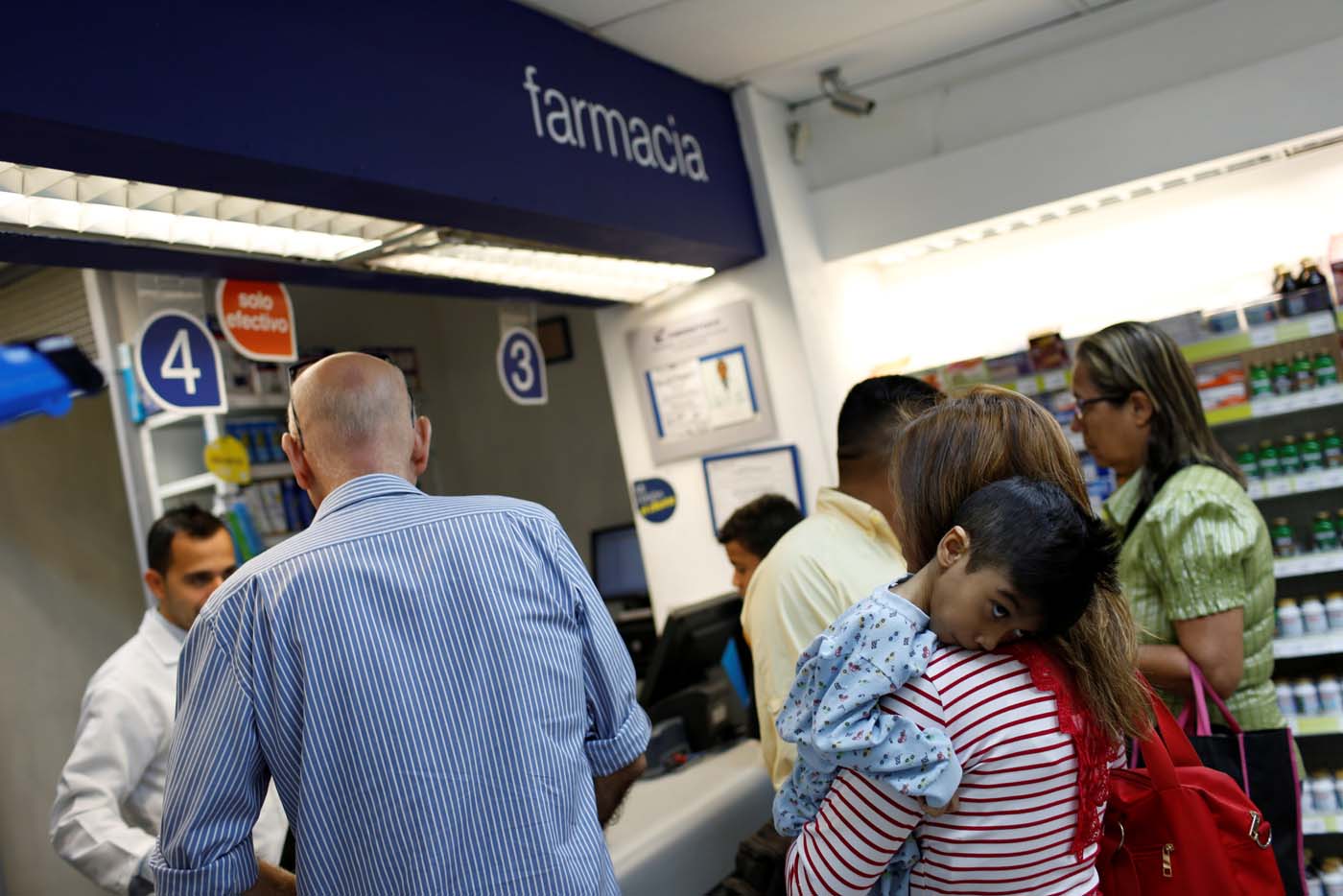
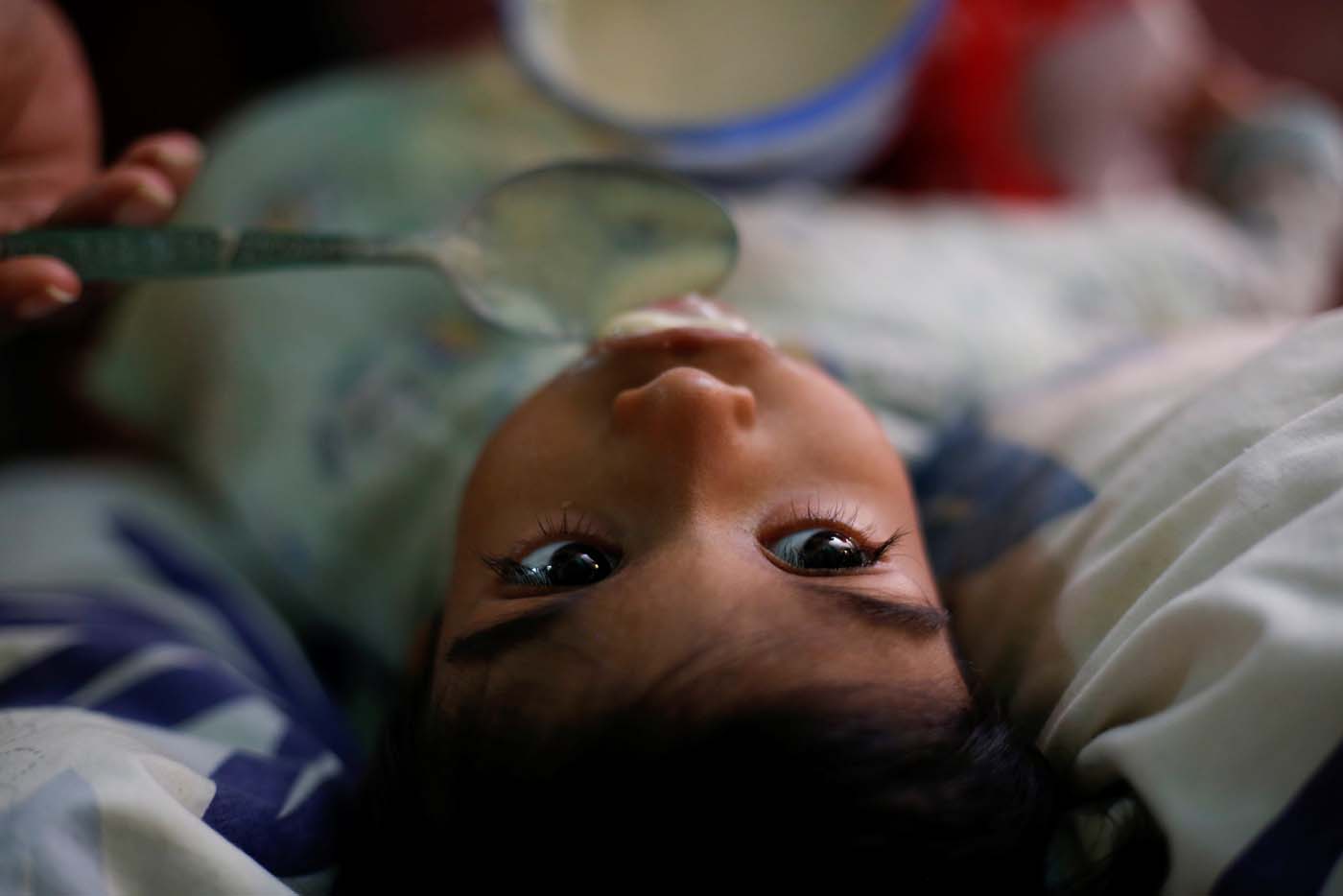
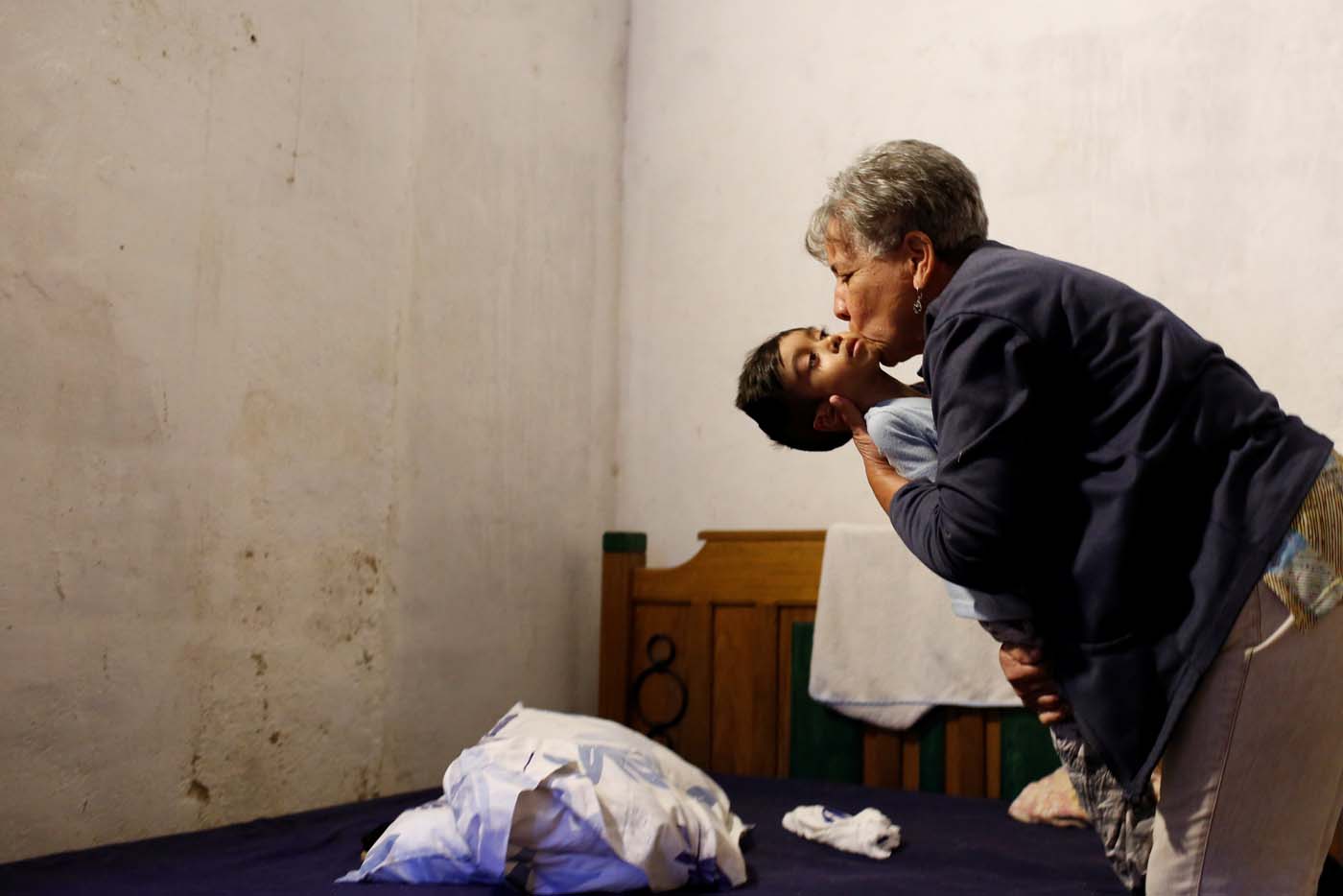
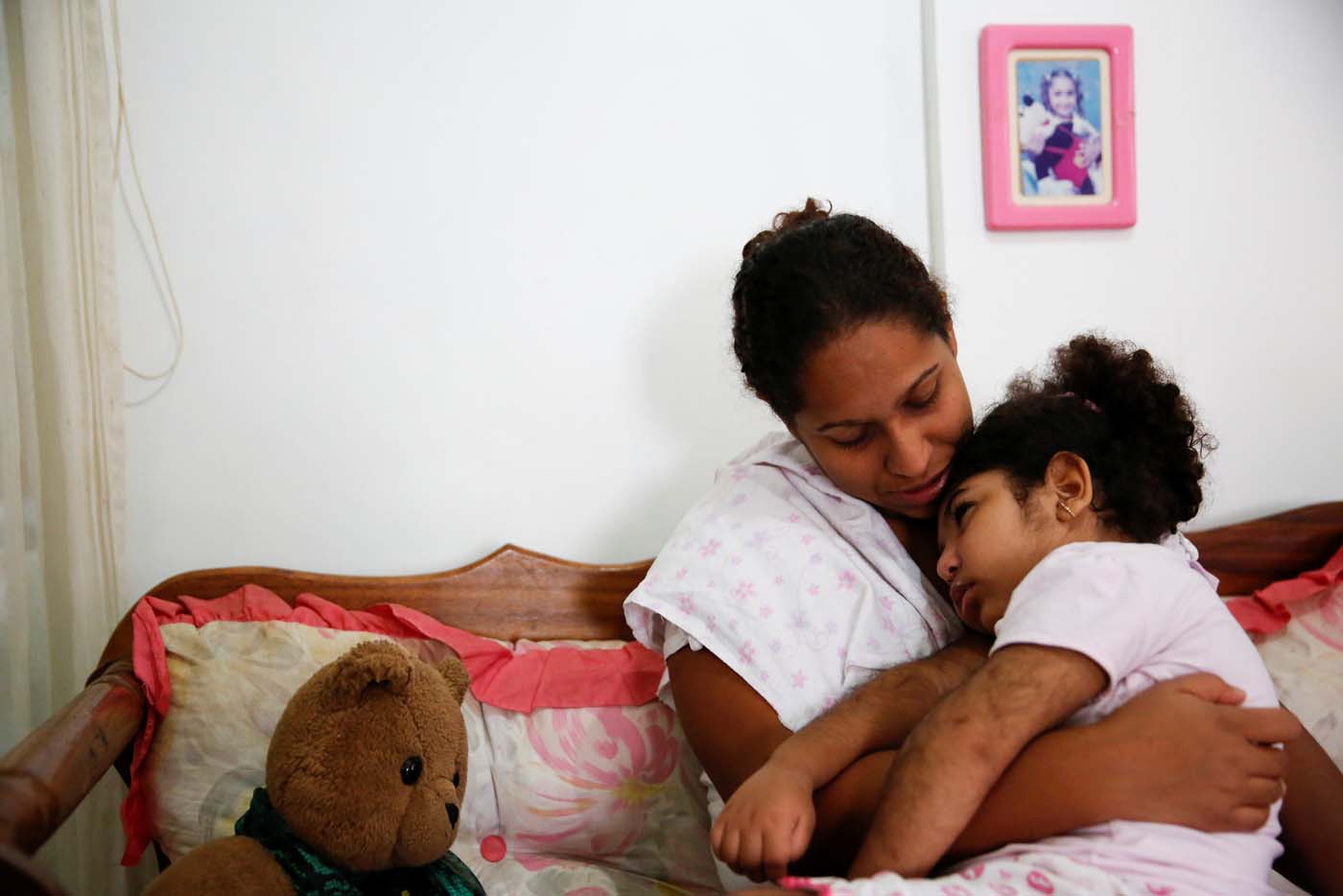
Lea también:
¡Deja tu comentario!